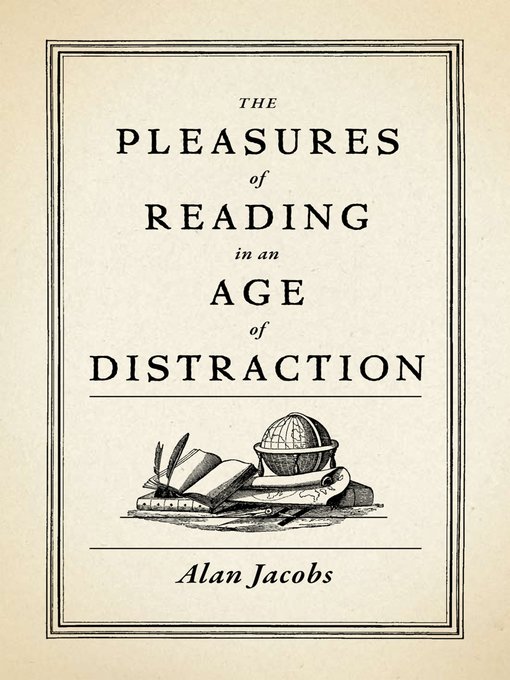
The Pleasures of Reading in an Age of Distraction
کتاب های مرتبط
- اطلاعات
- نقد و بررسی
- دیدگاه کاربران
نقد و بررسی

April 11, 2011
Montaigne once wrote: "there are more books on books than on any other subject: all we do is gloss each other." The great French essayist could have been thinking of Wheaton College English professor Jacobs's tired and trite defense of reading. Jacobs affirms that reading books is one of the great human delights, yet argues that numerous books on readingâsuch as Mortimer Adler's "dutiful How to Read a Book"âhave driven more people away from books than have invited them into the joys of reading. Taking a page from the great literary critic Randall Jarrell, Jacobs's definitive principle is to "read at whim." Rather than sticking to a reading list of the "classics" or books we feel compelled to read in order to feel edified, we will enjoy reading even more, he says, if we select those books that interest us and immerse ourselves in their worlds. Jacobs's ideas are hardly fresh; eminent book critic Michael Dirda has more eloquently proposed in numerous books that we should read at whim for the pleasure it brings us.

April 15, 2011
To the reader whose delight in books has diminished, Jacobs (English, Wheaton Coll.; The Narnian: The Life and Imagination of C.S. Lewis) provides a combined love letter to books and a pep talk for the act of reading, one that habitual readers will also enjoy. Jacobs shies away from directives and exhorts on behalf of whim--read what you are moved to read, not what you feel you ought to read. He eschews literary snobbery, too, consciously distancing himself from works such as Mortimer J. Adler and Charles Van Doren's How To Read a Book, which Jacobs finds too prescriptive. He examines the distractions present in daily life, including the Internet, which may erode the ability to pay deep attention. But this lost ground may be regained; Jacobs rediscovered his own ability to read by using a Kindle. VERDICT This book is just right for its audience, whom Jacobs names as "those who have caught a glimpse of what reading can give--pleasure, wisdom, joy." A vigorous and friendly exhortation to get back into the kind of reading that made you a reader in the first place. Recommended.--Audrey Snowden, formerly with Cleveland P.L.
Copyright 2011 Library Journal, LLC Used with permission.

May 15, 2011
This is not one of those books that tells you how to read a book (for example, the classic How to Read a Book (1940), by Mortimer Adler and Charles Van Doren) or, perhaps worse, what books you should read. Those books, suggests Jacobs, are one reason why people often approach reading as a means of laborious self-improvement, a fearfully disciplined appointment with an elliptical trainer of the mind . . . that allows you to look back on your conquest of Middlemarch with grim satisfaction. Shouldnt reading be enjoyable? Wheres the joy in that? And so Jacobs, a dedicated and passionate reader, suggests that we read at whim, allowing ourselves to seek out books into which we can get lost like we did as kids, but also, crucially, allowing ourselves to remain open to the enrichment and transformation that reading literature can invite. All of this is complicated, of course, by our omnipresent smart phones and information-age compulsion to multitask at all times. (Jacobs does love his e-book reader, however.) A passionate call to indulge ones readerly passions in the pursuit of centeredness and growth, this book just might change the way you think about reading.(Reprinted with permission of Booklist, copyright 2011, American Library Association.)

























دیدگاه کاربران